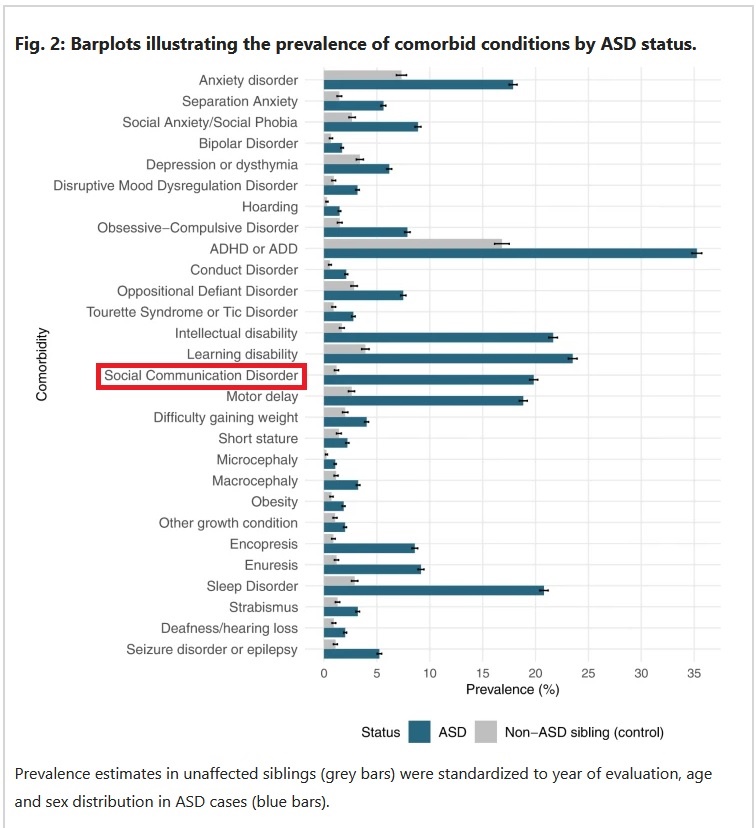NT people in my family dont like it because im extremely blunt and to the point, im curious as to know why, is it down to my Autism, it seems like it to me
NT people in my family dont like it because im extremely blunt and to the point, im curious as to know why, is it down to my Autism, it seems like it to me
Hello James, from what you say (not a lot of detail to work from admittedly) and from reading some of the other posts you have made on this forum it sounds to me like you may be exhibiting the autistic trait of Social Communication Disorder where you are not using language in the expected way to engage in the conversation with your family.
Please note I am not a specialist (just an informed amateur) so do not act on what I say, but if, on reading up, you decide something should be done then speak to a specialist first.
Back to the issue - the disorder and its possible treatments are described here:
https://www.autismspeaks.org/expert-opinion/social-pragmatic-communication-disorder
SCD is diagnosed based on difficulties with both verbal and non-verbal social communication skills. These skills include:
- Responding to others
- Using gestures (like waving or pointing)
- Taking turns when talking or playing
- Talking about emotions and feelings
- Staying on topic
- Adjusting speech to fit different people or situations – for instance, talking differently to a young child versus an adult or lowering one’s voice in a library.
- Asking relevant questions or responding with related ideas during conversation
- Using words for a variety of purposes such as greeting people, making comments, asking questions, making promises, etc.
- Making and keeping friends
Does this sound like the case for you?
The specific issue of bluntness could be related to this but is an issue related to us now knowing how to phrase responses in an acceptable way for the situations which I believe makes it relevant to SCD.
There is a good in-depth article on this specific issue and some ideas on how to deal with it:
https://myautismmind.com/being-real-without-offending/
As an adult, I’ve learned that being blunt isn’t necessarily a bad thing but it’s best used in certain scenarios and controlled in others; like everything else in life, self-control is a virtue( you can learn more about this from stoicism), you have to know when to let yourself be blunt and when to hold yourself back. If you can do this you can master human relationships more easily and remember you just need some discipline and self-control.
Again remember I'm just some random from the internet so don't act on what I think without doing your own research and possibly speaking to a professional.
Hmm, the spambot swallowed my response here without any alert for the first time so I'll try again.
I did some more research into the comorbidities - which seem to mean which groupings of symptoms are present in those diagnosed as autistic - and there are some fascinating results:
From the research article https://www.nature.com/articles/s41398-023-02374-w
This would imply that 20% of autists have SCD as a condition (i.e. not a diagnosis in its own right).

Other sites talk about SCD being used as a diagnosis when other autistic traits are not present, but the traits clearly seem to also be part of the autism spectrum.
I guess it is a technicality in what is a group of traits and what is a diagnosis term but they seem to me to be the same in relation to how it impacts the person.
Anyway the diagram makes for fascinating reading.
Hmm, the spambot swallowed my response here without any alert for the first time so I'll try again.
I did some more research into the comorbidities - which seem to mean which groupings of symptoms are present in those diagnosed as autistic - and there are some fascinating results:
From the research article https://www.nature.com/articles/s41398-023-02374-w
This would imply that 20% of autists have SCD as a condition (i.e. not a diagnosis in its own right).

Other sites talk about SCD being used as a diagnosis when other autistic traits are not present, but the traits clearly seem to also be part of the autism spectrum.
I guess it is a technicality in what is a group of traits and what is a diagnosis term but they seem to me to be the same in relation to how it impacts the person.
Anyway the diagram makes for fascinating reading.